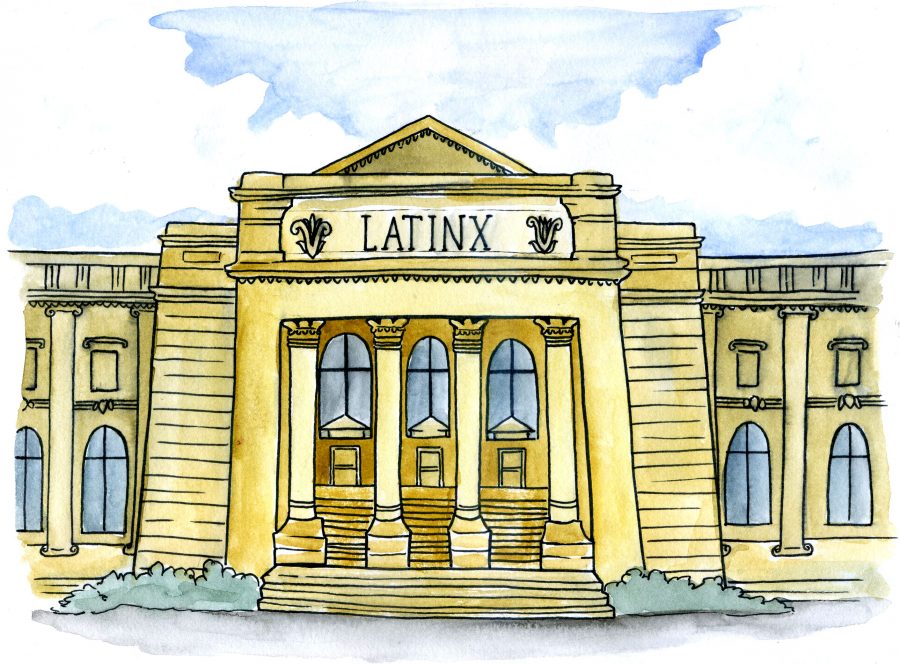Masculine and feminine pronouns and suffixes dictate the language. However, most words center the male gender as supreme.
If a group of Latin American women are together, we would likely refer to them as “Latinas,” but as soon as one man joins, we would identify the group as “Latinos,” taking the masculine form of the word. My venture into college and activism circles on social media introduced me to the inclusive term “Latinx” (La-teen-ex), an up and coming gender-neutral term that subverts the typical gendered masculine and feminine binary of the Spanish language.
Although I identify as a man, I find myself using Latinx as an umbrella term to encompass all people with backgrounds from Latin America, regardless of gender identity. As vice president of Latinx organization Texas Fuego,it’s my duty to make sure our organization is inclusive to all Latinx people. Latinx is a term that should be adopted into mainstream culture and used exclusively by every Latin based organization on campus.
Organizations such as “Flores,” a Latinx feminist organization, use the term to upend notions of patriarchy and colonialism in Latin American culture.
“I think the most important part of Flores is that people are learning about their identities and other people’s identities and how we can recognize what is wrong with (our culture) and try to fix it and use that information and take it home,” said Nikki Lopez president and co-founder of Flores. “The more you learn about ‘Latinx’ the more it sticks with you.”
According to Google trends, Latinx began to popularize in 2014 with the search interest of the term rising from less than 25 percent to 100 percent in May 2016 alone. But the term’s rise hasn’t come without backlash. Some say Latinx excludes non-English speakers. Others, such as Latinx students/activists Gilbert Guerra and Gilbert Oberra, argue that it’s only a “buzzword” that butchers the Spanish language and “(forces) U.S. ideals upon a language in a way that does not grammatically or orally correspond with it.”
These opinions are contextually excluding many Latinx’s who are not raised learning the Spanish language. This doesn’t make them any less Latinx, or any less of an agent to their identity.
“The thing is, when it comes to people and how they identify themselves, I think they should have the right (to identify) however they want to without being labeled as ‘la mujer’ or ‘el hombre’ because gender is social construction,” said Spanish assistant instructor Lauren Pena.
Language constantly changes, and pushing back against gender inclusivity can be stifling to many people within our own culture, many whom we love and care for deeply.
“If you look at the words, Latino or Latina come from the Latin language and the Roman Empire … and none of us are in the Roman Empire,” Pena said. “There’s no issue there, but because it has been accepted into the mainstream language.”
As student leaders we must understand that many people with backgrounds from Latin America do not identify with the gender binary. There are resources on campus such as the Gender and Sexuality Center to understand ‘Latinx’ and make our groups and organizations inclusive to those that hold that identity close.
Identity matters — and we must adapt to recognize them all.
Devora is a journalism senior from Mesquite. Follow him on Twitter @kahrlosh





















